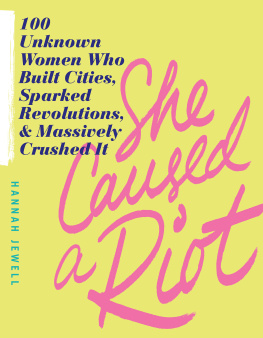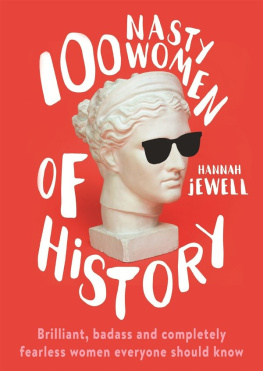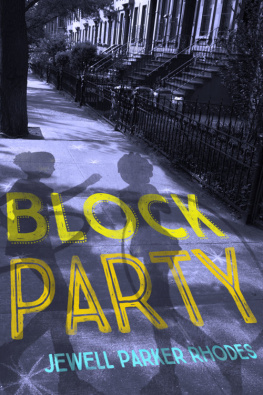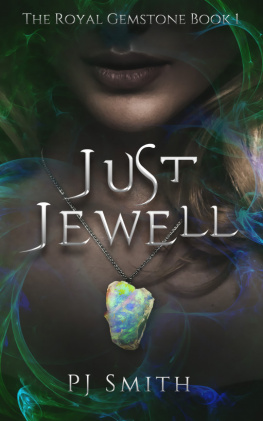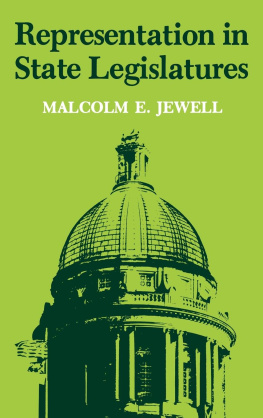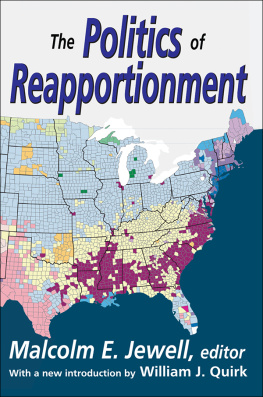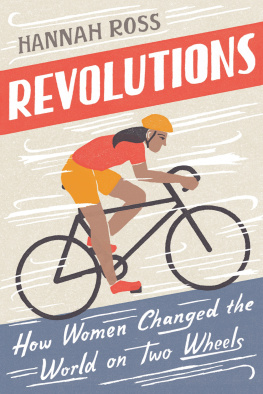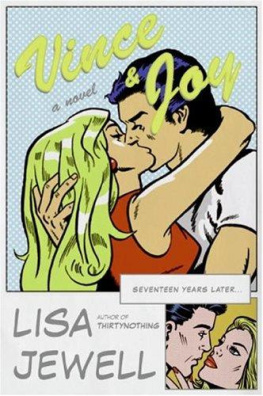Cover and internal design 2018 by Sourcebooks, Inc.
Sourcebooks and the colophon are registered trademarks of Sourcebooks, Inc.
All rights reserved. No part of this book may be reproduced in any form or by any electronic or mechanical means including information storage and retrieval systemsexcept in the case of brief quotations embodied in critical articles or reviewswithout permission in writing from its publisher, Sourcebooks, Inc.
This publication is designed to provide accurate and authoritative information in regard to the subject matter covered. It is sold with the understanding that the publisher is not engaged in rendering legal, accounting, or other professional service. If legal advice or other expert assistance is required, the services of a competent professional person should be sought. From a Declaration of Principles Jointly Adopted by a Committee of the American Bar Association and a Committee of Publishers and Associations
The vignettes in this book are both composite and actual stories of individuals and couples.
All brand names and product names used in this book are trademarks, registered trademarks, or trade names of their respective holders. Sourcebooks, Inc., is not associated with any product or vendor in this book.
Poem by Julia de Burgos, Farewell in Welfare Island from Songs of the Simple Truth: The Complete Poems of Julia de Burgos (Willimantic: Curbstone Press, 1995). Translation copyright 1996 by Jack Agueros. All rights reserved. Permission granted by Northwestern University Press.
Originally published in 2017 in the United Kingdom by Hodder UK as 100 Nasty Women of History.
Published by Sourcebooks, Inc.
P.O. Box 4410, Naperville, Illinois 60567-4410
Library of Congress Cataloging-in-Publication data is on file with the publisher.
For my friend Sylvia Bingham, who was bold and brilliant and unlike anyone else.
Introduction
In the final debate of the 2016 United States presidential election, Donald Trump leaned in to the microphone as Hillary Clinton spoke about social security, twisted up his small, wrinkled mouth, and called his opponent such a nasty woman. The phrase has stuck around since he first uttered it. Its been smacked on T-shirts, its been put in Twitter bios, and its come to mean something more than just a smear of Hillary Clinton or a defiant rallying cry for her supporters. Its come to represent the type of woman who has managed to piss off a man for not behaving as she was expected. Or for having unladylike ideas. Or for murdering him. A woman who has, in her own way, caused a riot.
In this hellhole of sexism and racism and homophobia and inequality and impending global climate catastrophe, it can be hard to know what to do to feel better, beyond perhaps a cathartic scream or drinking to oblivion. So heres a suggestion: What better time than the present to look back at the difficult women who came before us? What can we learn from them about how to cause a few riots of our own?
Often when learning about history, when you get to hear about women at all, their lives are made to sound decidedly boring. As if they spent their entire time on Earth casting woeful but beautiful glances directly into their glittering futures, calmly rebuking those who would stop them from achieving their goals.
But youre a woman! a powerful man says to the imagined Bold-Yet-Morally-Irreproachable Woman of History.
Shh, I shall overcome this difficulty, she replies heroically, turning to face the audience. Because I am a strong, empowered woman, and I will never stop believing in the power of my dreams! Live! Laugh! Love!
Well, that isnt how life works, and it never has been. There are no unrelentingly noble people. When you hear the story of a woman who lived a life that was 100 percent pure and good, youre probably missing the best bits. The nasty bits.
Maybe she got her tits out. Maybe she slept around. Maybe she stole. Maybe she betrayed someone, or maybe she was betrayed. Maybe she was pure and good but made a few mistakes. Maybe she fought against one injustice but ignored another. Maybe she was shot by Nazis. Maybe she shot a Nazi, or perhaps a czar, or some twat who had come to colonize her country.
These are the types of stories in this book. Please take these womens names and commit them to your brain. Clear away the likes of Jack the Ripper, who was literally just a murderer, and John Hancock, who, lets face it, is only famous for having a swirly signature, and make room for these names instead. Theyre better. Theyre lady names. Theyre the names of women too brave and too brilliant and too unconventional and too political and too poor and not woman enough and not white enough to be recognized by their shrivel-souled contemporaries.
Take these stories and tell them to your friends. Because these women shouldnt only be known by a few historians. They should be so well-known that their names would make terrible passwords. So well-known that Netflix commissions a miniseries about their lives. (Or we at least get a History Channel documentary.)
These women should be so well-known that lazy eight-year-olds, when tasked with a history project about a famous person from history, say, I dont know, there are like eight books in the library about Phillis Wheatley. Lets just copy from them and call it a fucking day.
So well-known that people dress up as slutty versions of them for Halloween and dont have to explain them. Oh, I get it, youre slutty Septimia Zenobia, warrior queen of third-century Syria, your friends say when you enter the party. Didnt Jill come as that too? Awkward!
So well-known that not one but two members of your weekly trivia team will be able to instantly recall their names in the history round, despite being quite drunk.
So well-known that people incorrectly assign great inventions and achievements and conquests to them, when really the story was more complicated than that, or actually she was only one of a group of people, which maybe even included a few forgotten men. So that the conversation goes like this:
Person A: Emmy Noether invented all of mathematics.
Person B: Yeah, that sounds right. I remember learning something about her in school. Shes very well known.
Person A: Well, that settles that. Lets get tacos.
That well-known.
Beyond fear and bewilderment, in your day-to-day life as a twenty-first-century gal, you may have found yourself developing an overwhelming desire to climb into a womb. Any womb.
This book is my womb. I feel most warm and most fetal when sitting in a library, absorbing stories of long-dead women as if through an umbilical cord, having promise and possibility pumped into me like nutritious amniotic fluid. As a fetus floats in a womb and sets about growing fingers and toes and guts and eyeballs and a brain, I have been suspended in my book-womb, growing these stories one at a time.
Reading about cool women from history just feels good. It feels like a relief. Sometimes it feels like coming up with the perfect retort for an argument you had many years ago. See! youll want to say. Look at her! That proves my point! It can feel bittersweet, which, by the way, was an emotion first expressed in history by a woman. Keep reading to find her. There will be a test.

